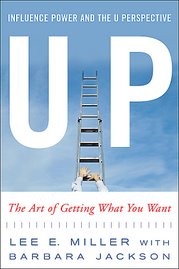During my 20-plus years as a senior human resources executive, I have been involved in numerous layoffs. The process used to determine who stays and who goes is anything but an exact science. While some choices are obvious, many are not. There are three basic criteria used to determine who is terminated: 1) the importance of the job functions an individual performs, 2) the quality of an individual's work, and 3) whether the people making the termination decisions know and like you. There are things that you can do to increase the likelihood that you will survive a downsizing.
If you want to increase the importance of the work you are doing, focus on those aspects of your job that are most important to your boss and to the organization. Volunteer to help out on key projects. Attend and actively contribute at meetings where those projects are being discussed. Anything that makes your boss look good to his or her superiors is important work in your boss' eyes. And try to find ways to make or save money. Especially in tough times, rarely do companies fire someone who is putting money in their pocket. As to the quality of your work, while it may be difficult to quickly improve your performance, you can show that you are working hard. Come to work early, stay late, demonstrate a mastery of the details of the projects you are working on, and be sure to let your boss and other decision-makers know about your successes.Of the three criteria, however, getting the people who will decide your fate, starting with your boss, to know and like you is the one thing that many employees frequently ignore, to their detriment. According to Stephen Viscusi, author of Bulletproof Your Job, "If your boss knows you, likes you, has a good impression of you, you're much less likely to be fired than someone who doesn't enjoy that relationship with the boss." When it comes to developing that kind of connection with your boss, Viscusi offers the following admonitions:
- Be Visible: "Introduce yourself." People tend to shy away from interacting with managers outside of their immediate team. But if you look for opportunities to introduce yourself to the "big bosses" at conferences or company meetings, for example, you broaden your exposure. The more "higher ups that know you and have a favorable impression of you, the less likely you are to get fired."
- Be Easy: Don't be viewed as a high-maintenance employee. Managers use layoffs as an opportunity to get rid of the gripers and malcontents. By the same token, they look to retain employees whom they have come to depend on. Do what you say you're going to do every single time. No excuses, no buck passing, no dog ate your homework, no computer crashes. If your boss knows without a doubt that he can depend on you day to day, as well as in an emergency, you will avoid the pink slip.
- Be Useful: The more of a role you play in the important work that gets done at the company, the more indispensable you are to your boss. Show initiative and don't be afraid to volunteer for tasks that are viewed as important by your boss and the organization.
- Be Ready: Preparation is the key to success. Be prepared for whatever might happen. Building a network before you need one by helping others will ensure that help is available for you if and when you need it. Being prepared will help you project confidence in the value you bring to the organization. "Confidence is very attractive. It makes you seem more capable, more valuable and more of a keeper when layoff decisions are being made."
Hopefully the rash of layoffs we are currently experiencing will soon be a thing of the past. Knowing how to position yourself at work so that what you do is appreciated by your boss and others in positions of authority however, is a skill that will be invaluable to you throughout your career.


